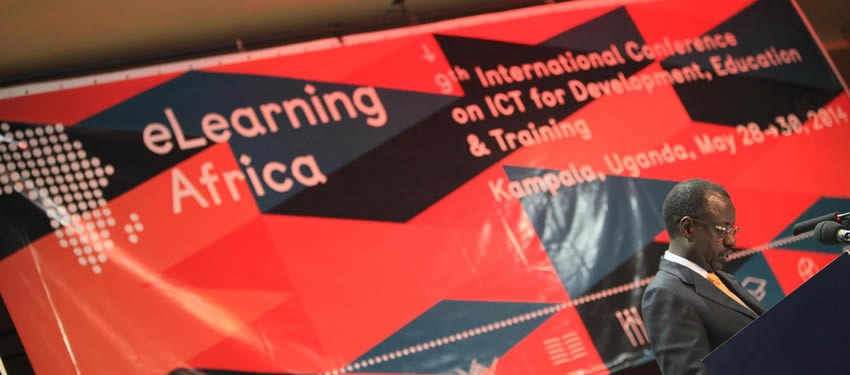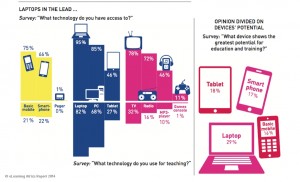Expanding broadband infrastructure is the key to improving education in Africa a roundtable of ministers from across the continent concluded last month.
News and business analysis for Professionals in International Education
Have some pie!
African leaders call for more internet access to improve education

The gathering was part of the 9th eLearning Africa conference in Kampala Uganda where over 1,500 education and technology stakeholders met to discuss innovations in learning technology and increasing affordable internet access.
“A 10% increase in investment in broadband infrastructure can guarantee a 1.3% increase in economic growth,” it was noted at the roundtable of Ministers or their representatives from countries including Cameroon, Ghana, Kenya, South Africa, Uganda, and Zimbabwe.
“Telecommunications infrastructure feeds into education which then feeds into the economic growth of the next generation”
“Telecommunications infrastructure feeds into education which then feeds into the economic growth of the next generation,” said Harold Elletson, editor of the eLearning Africa Report which was launched at the event. “It’s extremely significant and it’s good that that message seems to have taken root.
“There has been a tendency to focus on the idea of implanting technology from outside to solve all the problems but it’s not the way to turn things around,” Elletson added.
The third edition of the eLearning Africa Report presents the opinions of education and technology professionals on issues affecting the sector.
A Nairobi-based ICT specialist Leonard Mware reflected on the danger of focusing on technology over broader infrastructure improvements in his opinion piece critical of Kenya’s laptop project.
“Could this $300 million laptop project have just been a ruse for some businessmen or politicians to get paid back? Is this the reason why no one bothered to get a thorough feasibility study done before commencement?” he asked.
In the report, Brahima Sanou, director of Telecommunication Development Bureau of the International Telecommunication Union, underlines the lucrative market for the telecom and ICT sector on the back of e- and mLearning demand.
“For African citizens to benefit from accessing the digital society, more needs to be done to develop and extend national broadband backbones and extend broadband access at the local level,” he argued.
The report also includes results of a survey of some 1,500 stakeholders across the continent responding to questions about government regulation, the urban-rural divide and the role of native languages in a globally minded classroom.
 Key findings show that 99% of respondents believe Information and Communcation Technology (ICT) should play a greater role in developing cross border learning and a global classroom, and already 63% of respondents using ICTS do so to communicate with people from outside Africa.
Key findings show that 99% of respondents believe Information and Communcation Technology (ICT) should play a greater role in developing cross border learning and a global classroom, and already 63% of respondents using ICTS do so to communicate with people from outside Africa.
“For African citizens to benefit from accessing the digital society, more needs to be done to develop and extend national broadband backbones”
Over half of respondents said governments will be most influential in the continued development for technology-enabled learning and almost 30% said laptops were the device showing the greatest potential for education and training, over tablets or mobile phones.
The report also includes country profiles on 55 African countries including information on internet connectivity, demographics, politics and experience so far of using technology in education.
In addition to the ministerial round-table, the three-day conference was bolstered by keynote speakers from across Africa including Cameroonian entrepreneur Rebecca Enonchong, founder and Chief Executive Officer of AppsTech, Kenyan Dr Bitange Ndemo, Honorary Chair of the Foundation for Affordable Internet, John Nasasire, Uganda’s Minister for ICT, George William Nyombi Thembo, Uganda’s Minister of State for ICT and Kamanda Bataringaya, Uganda’s Minister of State for Higher Education.
Still looking? Find by category:



More internet, and more gadgets need to realize the potential of technology in teaching and learning